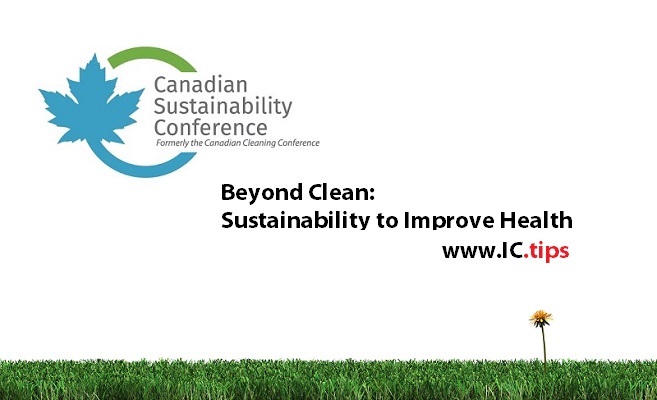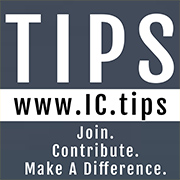What is sustainability? Strictly speaking, it’s ensuring that we can continue with our daily activities without any consequences to our collective outcomes. In healthcare, this has meant reducing the carbon or waste footprint from the products we use, as well as taking care of the patients and employees to improve their long-term outcomes. In infection prevention and sanitation, the concept also extends to leveraging the desire for sustainable methods with technology so that any gains in sustainability are not achieved at the expense of a decrease in protection against super pathogens that reduce the effectiveness of antibiotics (antimicrobial resistance, AMR) (Lowy, 2003).
Sustainability is a practice that is echoed by public health agencies around the world. Using the entire prescribed course of antibiotics, reducing unnecessary antibiotic usage, or even improving hand hygiene are all examples of ways to extend the usability of products and reduce the burden on ourselves and healthcare systems (Pittet, Allegranzi & Storr, 2008). Antibiotics are commonly discussed, as the currently-available number of antibiotics to fight deadly diseases is quite limited; due to the development and spread of antibiotic resistant strains of disease, the number of effective antibiotics is diminishing every year. There are efforts around the globe to discover and synthesize new classes of antibiotics, but the number and effectiveness of these new antibiotics is insufficient to meet the need; in other words, they are unsustainable.
With the spread of antimicrobial resistance and thus more resilient bacteria and viruses, the cleaning industry has had to adapt
Cleaning, especially in a public setting suffers a similar problem. With the spread of antimicrobial resistance and thus more resilient bacteria and viruses, the cleaning industry has had to adapt. Historically, the strategy was to employ more caustic cleaning compounds to eliminate these pathogens (Fernando, Gray & Gottlieb, 2017). Although this has been extremely effective at removing pathogens, there is a shift away from these compounds, as there are other issues that arise from using caustic cleaners. They can degrade hospital surfaces, which can harbour bacterial growth and can pose a danger to the employees and patients that are exposed to them.
Action Through Collaboration
In May 2019, MCL Green Cleaning Limited and strategic partner The Infection Prevention Strategy (TIPS), are collaborating to present the Canadian Sustainability Conference. This conference, which is focused on sustainability, leadership and infection prevention, brings together experts from around the world to discuss the latest innovations and strategies in sustainable practices to improve health and sanitation. The conference builds upon the United Nations’ Sustainability Development Goals in Health, Sanitation, and Innovation, and will help attendees examine technologies, innovations, ideas, and solutions that go ‘beyond clean’ to support businesses, organizations, communities, and Canadians.
The annual Canadian Sustainability Conference attracts professionals from across the sustainability industry, including healthcare, government, facilities management, environmental, sustainability, social responsibility, technology, and business professionals. Participants will be able to learn about and see the latest state-of-the-art cleaning, sanitation, infection prevention, social responsibility insights, and sustainable best practices.
Included among this year’s speakers are:
(Several TIPS Board and TIPS Advisory Board Members are speaking)
- Keynote speaker: Craig Kielburger, Co-Founder of the WE Organizations, Social Entrepreneur, Humanitarian, and New York Times best-selling author;
- Christine Greene, MPH, Ph.D., NSF International, TIPS Board member;
- Michael Diamond, TIPS Co-Founder and Executive Director
- John LaRochelle, Infection Control Specialist, Sodexo Canada, TIPS Advisory Board member;
- Jason Tetro, ‘The Germ Guy’, TIPS Advisory Board member;
- Jody Steinhauer, Entrepreneur, blogger, Founder of Bargains Group, Engage and Change, Kits For A Cause;
- Joanne St. Goddard, Executive Director, Recycling Council of Ontario;
- Marc Saltzman, ‘Tech Evangelist’, journalist, author, lecturer, consultant, radio and TV personality;
- Barley Chironda, Infection Control Expert, The Clorox Corporation, and,
- Many more.
The conference will be held May 14-15, 2019 in Toronto, Ontario, Canada.
CONFERENCE WEBSITE: https://sustainabilityconference.ca/
References:
Fernando, S. A., Gray, T. J., & Gottlieb, T. (2017). Healthcare‐acquired infections: prevention strategies. Internal medicine journal, 47(12), 1341-1351.
Lowy, F. D. (2003). Antimicrobial resistance: the example of Staphylococcus aureus. The Journal of clinical investigation, 111(9), 1265-1273.
Pittet, D., Allegranzi, B., & Storr, J. (2008). The WHO Clean Care is Safer Care programme: field-testing to enhance sustainability and spread of hand hygiene improvements. Journal of Infection and Public Health, 1(1), 4-10.












